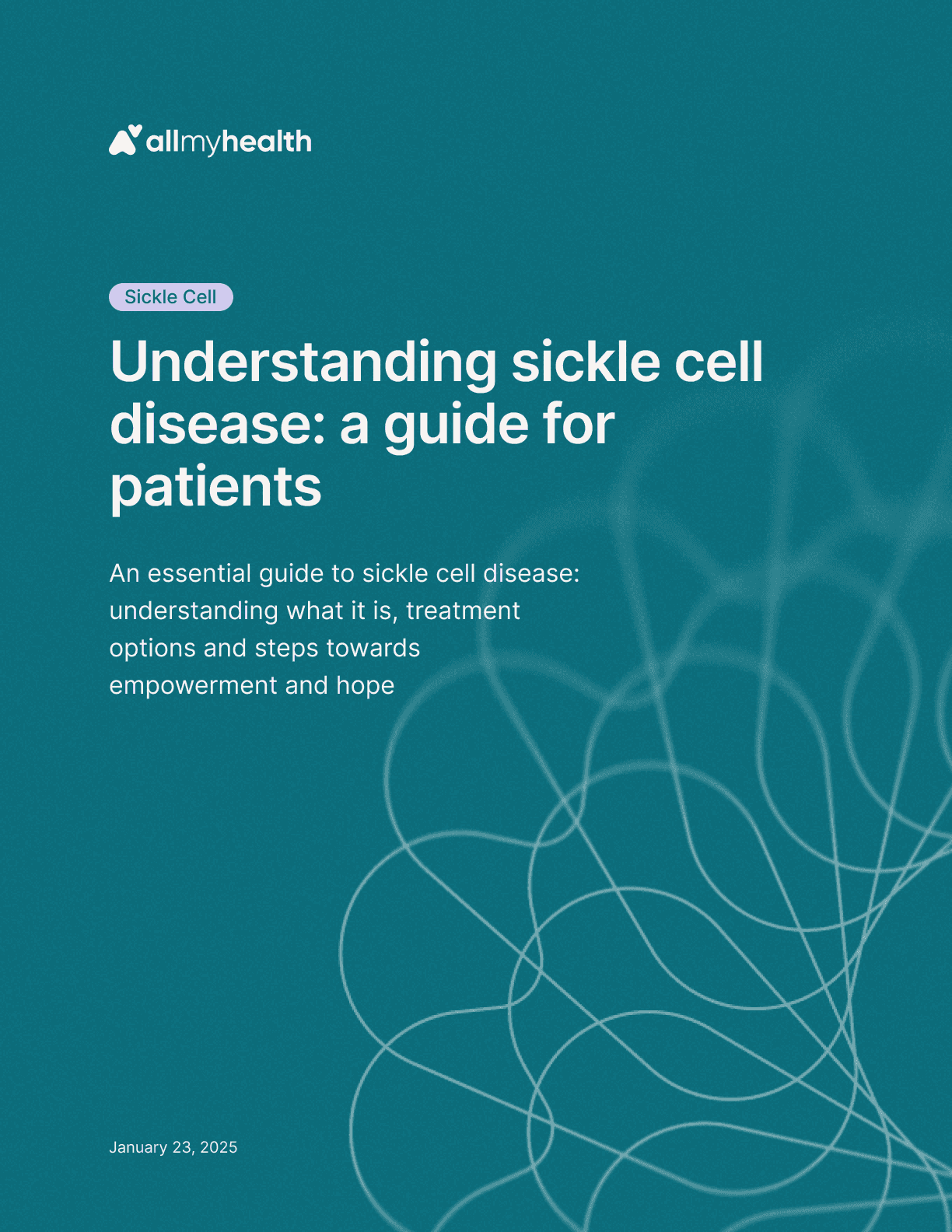- Sickle Cell Disease Insights
- Posts
- Sickle Cell Disease Insights
Sickle Cell Disease Insights
Understanding sickle cell disease: a guide for patients
Exclusive ReportUnderstanding sickle cell disease: a guide for patients Last week we introduced an essential guide created with AllMyHealth to help individuals and families better understand sickle cell. If you missed it, we're bringing it back this week to ensure you have access to this valuable resource. View the Full ReportThe report is available for free online on the AllMyHealth website. www.allmyhealth.io/report  |
Top StoriesUCSF Launches CRISPR Trial for Sickle CellResearchers are using CRISPR to correct the genetic mutation causing SCD by editing patients' own blood stem cells, potentially eliminating the need for a donor transplant. This approach could provide a safer alternative to current treatments. Read More →Biden-Harris Administration Expands SCD Treatment AccessThe Biden-Harris Administration is increasing access to new treatments for sickle cell disease by partnering with drug manufacturers to make gene therapies more affordable and available to those on Medicaid. This model aims to improve health outcomes and reduce costs. Read More →Stem Cell Transplants Feasible for Young SCD PatientsStem cell transplants can cure sickle cell disease by replacing faulty stem cells with healthy ones, offering improved health outcomes for those who undergo the procedure successfully. Read More →Sickle Cell Disease Advisory Committee MeetingExperts discuss SCD research priorities, focusing on gene therapies and organ health impacts. Read More → |
Latest Research A recent study led by Nangunia et al. (2025) has explored how sickle cell disease (SCD) affects healthcare workers' knowledge and the availability of resources for managing the condition. The researchers assessed the understanding of SCD among medical staff and examined the accessibility of necessary tools and information for effective patient care. They discovered that many healthcare workers lacked sufficient knowledge about SCD, and there was a notable shortage of essential resources in medical facilities. |